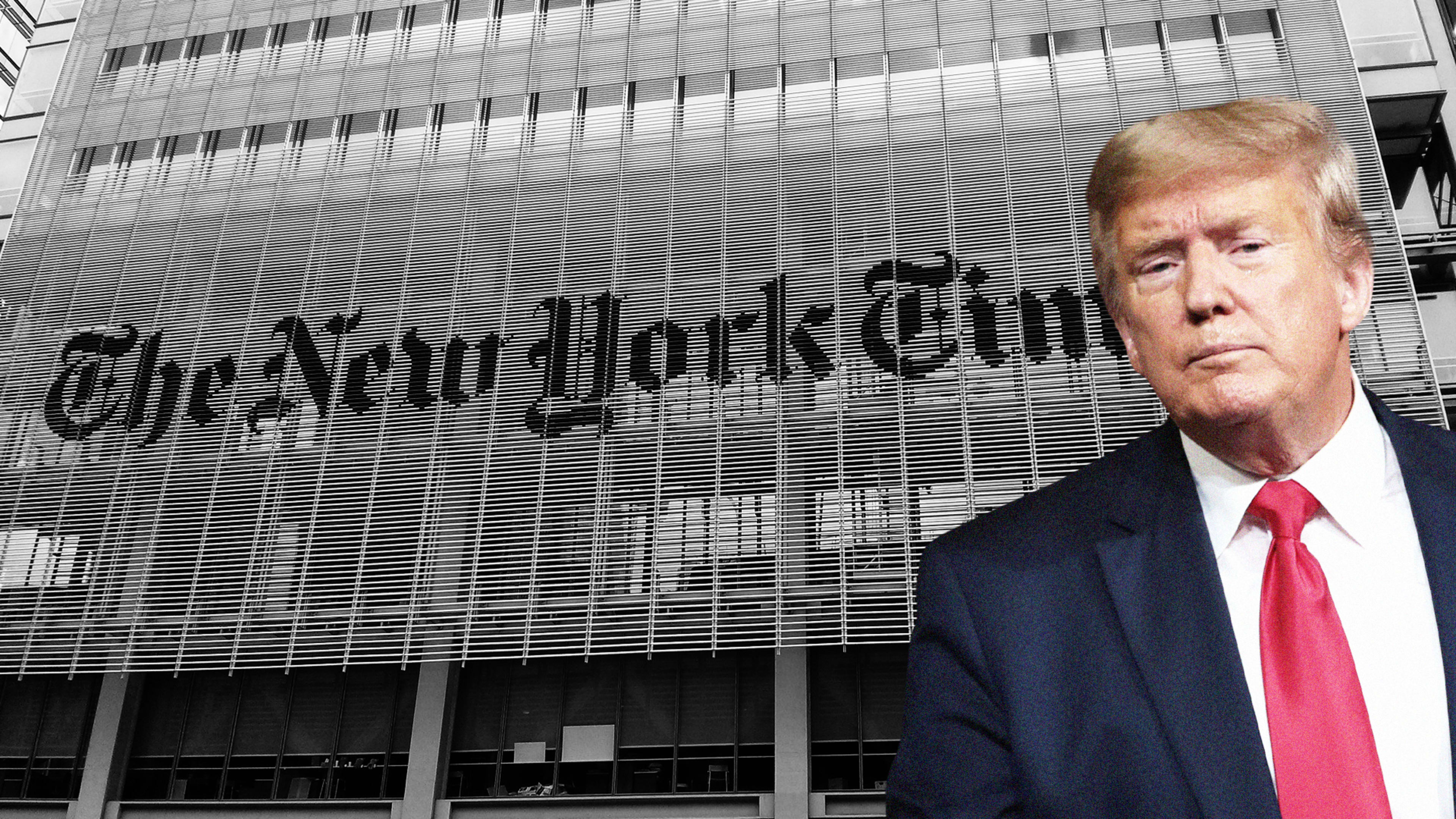President Trump’s reelection campaign is suing The New York Times for libel over an opinion piece the paper published in March 2019, titled The Real Trump-Russia Quid Pro Quo.
The piece, written by former Times executive editor Max Frankel, argues that it was no coincidence that U.S.-Russia relations changed under Trump after Russian actors targeted Hillary Clinton’s 2016 presidential campaign. “The [Trump] campaign and the Kremlin had an overarching deal,” alleges the summarizing sub-headline of the story, to “help beat Hillary Clinton for a new pro-Russian foreign policy,” regardless of whether it was explicitly spelled out.
The president’s campaign says that it wants to “hold the news organization accountable for intentionally publishing false statements against President Trump’s campaign,” according to a statement published by Reuters. It also alleges that the Times was eager to “improperly influence” the 2020 presidential election, a claim that falls in line with the president’s ongoing attacks on media organizations, which he’s called “the enemy of the American people.”
The Times responded shortly after the suit was filed on Wednesday. “The Trump campaign has turned to the courts to try to punish an opinion writer for having an opinion they find unacceptable,” Eileen Murphy, a spokeswoman, said in a statement. “Fortunately, the law protects the right of Americans to express their judgments and conclusions, especially about events of public importance,” Murphy added. “We look forward to vindicating that right in this case.”
Like the Times, or any large publisher, Trump is no stranger to libel lawsuits. In 2011, he lost a complaint against an author who called Trump a millionaire instead of a billionaire. The Times itself helped shape libel law, and the bar would certainly be high to win a suit against arguably the most famous person in the world. Given the president’s keen interest in his press clippings, particularly in his hometown newspaper, it’s possible that the president’s team simply aims to discourage negative coverage rather than challenge a single opinion story, long since forgotten, that was published more than 10 months ago.
Recognize your brand’s excellence by applying to this year’s Brands That Matter Awards before the early-rate deadline, May 3.
